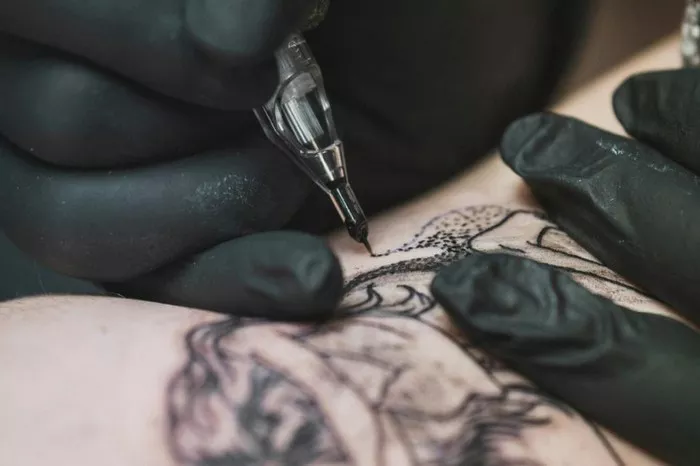Tattoos have become increasingly popular over the years, with people from all walks of life opting to adorn their bodies with various forms of art. However, the decision to get a tattoo, especially at a young age, comes with significant considerations, both legally and health-wise. This article delves into the minimum age for getting a tattoo, the legal regulations across different regions, and the health implications of tattooing minors.
Legal Age for Getting a Tattoo: An Overview
The legal age for getting a tattoo varies widely across the globe, often depending on national or regional laws. In many places, minors are prohibited from getting tattoos without parental consent, while in others, tattooing minors is strictly forbidden regardless of consent.
United States
In the United States, tattoo laws are state-specific, and the regulations can differ significantly. Generally, most states require individuals to be at least 18 years old to get a tattoo without parental consent. Here are a few examples:
California: Individuals must be 18 years old to get a tattoo. Parental consent is not sufficient for minors.
New York: The minimum age is 18. Parental consent does not allow minors to get tattooed.
Florida: Minors aged 16 and 17 can get a tattoo with parental consent.
Texas: Individuals under 18 can get a tattoo with parental consent, but the tattoo must not be visible outside of standard clothing.
Europe
European countries also have varying regulations:
United Kingdom: The minimum age for getting a tattoo is 18. Parental consent is not accepted.
Germany: Minors can get tattoos with parental consent, though many tattoo artists choose not to tattoo individuals under 18.
France: The minimum age is 16 with parental consent.
Australia
In Australia, the regulations are again region-specific:
New South Wales: Individuals must be 18 to get a tattoo. Parental consent is not accepted.
Victoria: Minors can get tattoos with parental consent, but the tattoo must not be on the hands, face, neck, or genitals.
Queensland: The minimum age is 18, regardless of parental consent.
Asia
Asian countries have a mix of regulations:
Japan: There is no specific law regulating the minimum age for tattoos, but cultural norms discourage tattooing minors.
South Korea: The legal age is 18, and tattooing is generally performed by medical professionals due to regulatory practices.
Other Regions
Canada: Tattoo regulations vary by province, but generally, the minimum age is 18 or 19. Some provinces allow minors to get tattoos with parental consent.
New Zealand: The legal age is 18. Parental consent is required for those under 18.
Health Implications of Tattooing Minors
Tattooing minors raises several health concerns that need careful consideration. The physical and psychological development of adolescents means they might be more susceptible to certain risks associated with tattoos.
Skin Development
During adolescence, the skin is still developing. Tattooing at a young age can lead to potential complications such as:
Infections: Young skin may be more prone to infections due to a less mature immune system.
Allergic Reactions: The likelihood of allergic reactions to tattoo ink or aftercare products might be higher in minors.
Scarring: The risk of scarring can be more pronounced due to the delicate nature of younger skin.
Psychological Considerations
Getting a tattoo is a significant decision, and the permanence of tattoos can be a considerable factor for minors who might not fully understand the long-term implications. Issues to consider include:
Regret and Removal: Minors may regret their tattoos as they grow older, leading to costly and painful removal procedures.
Peer Pressure: Adolescents might get tattoos due to peer pressure rather than personal desire, leading to decisions they might regret.
Parental Consent and Its Implications
In many regions, parental consent is required for minors to get tattoos. While this legal stipulation aims to protect minors, it also introduces several complexities.
Responsibility and Decision-Making
Parents or guardians who consent to their children getting tattoos take on significant responsibility. They need to ensure:
Understanding of Risks: Both the parent and the minor should be fully aware of the health risks and long-term implications of getting a tattoo.
Choosing a Reputable Artist: Ensuring the tattoo artist follows strict hygiene and safety protocols is crucial to prevent complications.
See Also: 10 Tattoo Trends That Are Dominating in 2024
Legal Ramifications
Parental consent laws are designed to protect minors, but they also hold parents accountable for the decision. If complications arise, the responsibility lies with the consenting parent or guardian.
Tattoo Artist Perspectives
Tattoo artists play a vital role in the tattooing process, and many have their own policies regarding tattooing minors, even when parental consent is provided.
Ethical Considerations
Many tattoo artists refuse to tattoo minors, even with parental consent, due to ethical concerns. They may feel that:
Minors Are Not Ready: Adolescents might not fully grasp the permanence and significance of tattoos.
Potential for Regret: The likelihood of regret and the associated emotional and financial costs might be higher for minors.
Professional Reputation
Tattoo artists also consider their professional reputation. Tattooing minors can lead to:
Legal Issues: If regulations are not strictly followed, artists might face legal consequences.
Public Perception: Artists who tattoo minors might face public criticism, affecting their reputation and business.
Conclusion
The youngest age at which one can get a tattoo varies widely across the globe, governed by a mix of legal regulations and cultural norms. In most places, the minimum age is 18, but with parental consent, minors in some regions can get tattoos as early as 16. However, the decision to allow minors to get tattoos is fraught with health risks, ethical considerations, and potential for regret. Parents, minors, and tattoo artists must all carefully weigh these factors before proceeding with a tattoo for a young individual.
Understanding the legal, health, and ethical implications can help ensure that the decision to get a tattoo is well-informed and responsible, prioritizing the well-being of the minor above all.

